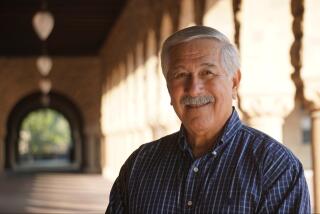THE PREVAILING SOUTH Life and Politics in a Changing Culture<i> edited by Dudley Clendinen (Longstreet Press, 2150 Newmarket Parkway, Suite 102, Marietta, Ga. 30067: $16.95) </i>
No American region has been rocked by more social change than the South. As historian C. Vann Woodward writes in one of these essays, “One-party politics went the way of one-crop agriculture and the one-horse farmer, and gone with them and the wind were the poll tax, the white primary, the Jim Crow laws and the white man’s monopoly on the ballot box . . . Cattle replaced cotton, blacks moved north, Yankees moved south and everybody moved to town.”
Given this flurry of change, one can see why the editor of this searching collection asked a group of native and expatriate Southerners, “Which traditions and values, if any, have prevailed in the South?” The answers he received vary widely, from sanguine appraisals of the region’s new power and visibility in American culture to warnings about vanishing traditions.
Ironically, it is the most optimistic essays that have the hardest time winnowing out stalwart Southern traditions. They point to trends which don’t quite add up to a Renaissance in the region’s “life and politics”: the “Southern oratory” of Jesse Jackson and Pat Robertson, the national popularity of Cajun food, the presence of Lloyd Bentsen and George Bush on the Democratic and Republican presidential tickets. Similarly, the region’s new economic prosperity--described in one piece as “a wonderful omen” for the South--arguably has not so much strengthened Southern culture as made it more American--more urban, more mobile and more uniform.
The most powerful and convincing essays collected here carry a groundswell of optimism beneath a cautious tone. While Southern traditions such as family and small communities are indeed endangered in daily practice, these essayists write, they are still thriving in oral storytelling and Southern literature. Arkansas writer Roy Reed, for instance, sees a special Southern pride in heritage, in ancestors who revered the soil, understood the land and “had no Percodan to blunt their pain, no BMW to soothe their egos, no analyst to set their lives straight, and no glistening, sanitized hospital room to ease them into eternity.”
Similarly, writer Pat Conroy affirms family in a moving essay in part about his mother, dying of cancer, who tells him, “Don’t write about me like this. Make me beautiful.” Conroy sees his work as a novelist as an attempt in part to affirm his past; it is, he writes, “the responsibility of being Southern.”


